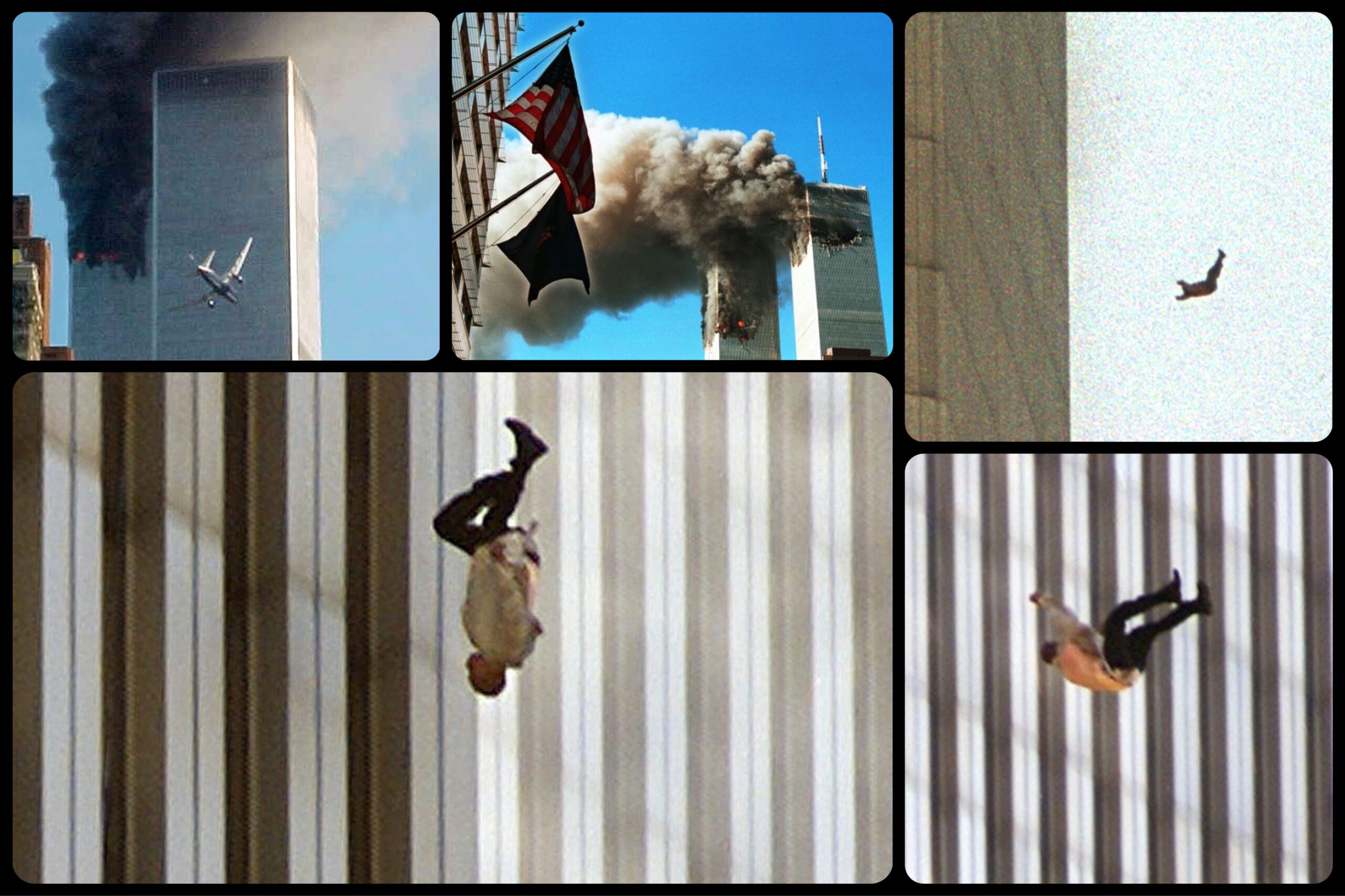In a poignant release of new accounts related to 9/11, numerous New York firefighters have shared their own harrowing narratives, describing the horror, heroism, and sheer chaos of the World Trade Center rescue mission. These heart-wrenching documents and audio recordings have finally come to light following a court order that concluded the city’s three-year struggle to keep them confidential.
In these deeply affecting recollections, transcribed in the aftermath of the attacks, firefighters and paramedics vividly recount witnessing desperate office workers tragically falling to their deaths as they attempted to escape the engulfing flames.
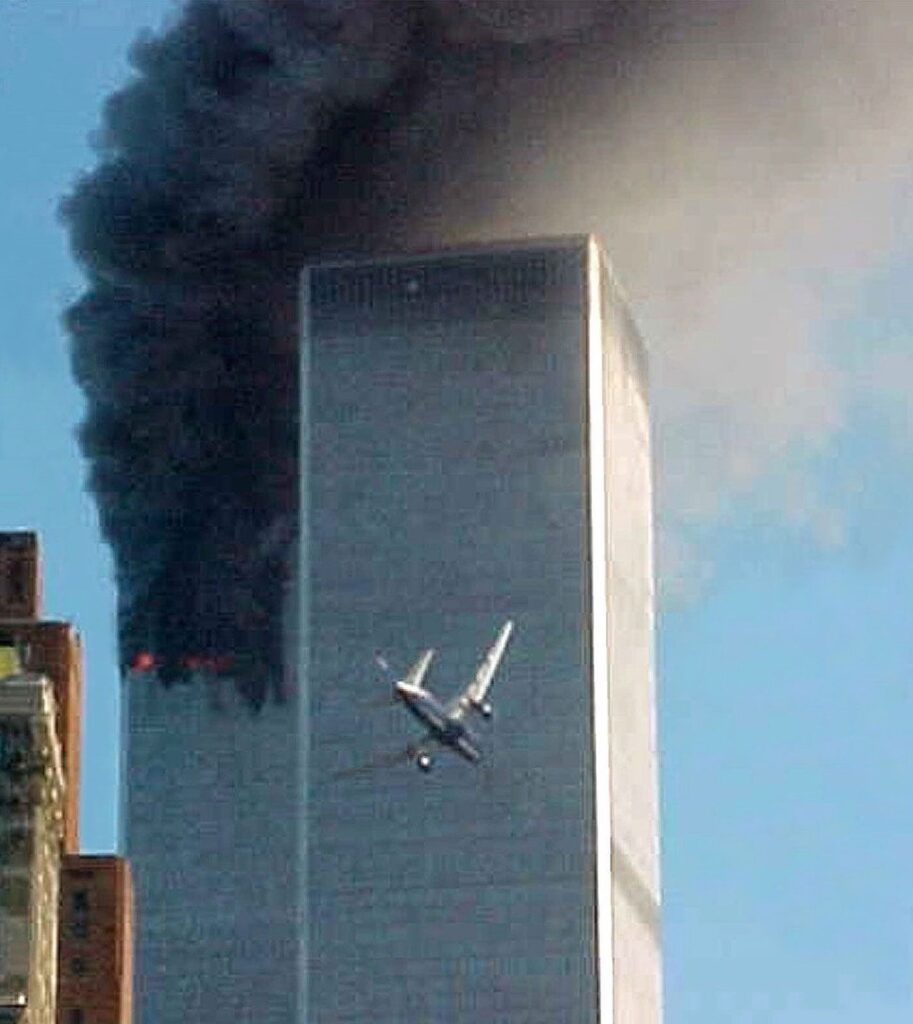
One such account comes from emergency medical technician Richard Erdey, who recalls the moment he rushed away from the scene in an ambulance with Daniel Suhr, the unfortunate victim struck by a falling body, marking the first known FDNY fatality that fateful day. Erdey somberly remarked, “I know he’s not going to make it… Anyone hit with a body from 70 stories up.”
Yet, Erdey found himself unable to break the devastating news to two of Suhr’s colleagues, who were also in the ambulance. He struggled with the dilemma, torn between the desire to provide comfort and the harsh reality. “They kept yelling, ‘Danny! Danny! Danny!’… Should I tell them? How can I tell them tactfully… Please stop staring at him. You’re going to burn this image in your head…”
“While the journey was brief, it felt like an eternity,” remarked one account. These recent revelations stem from a trove of 15 hours of audio tapes and 12,000 pages of transcripts, offering insights from FDNY radio dispatches and the testimonies of surviving rescue personnel who bravely battled to save those trapped within the flames and wreckage of the Twin Towers.
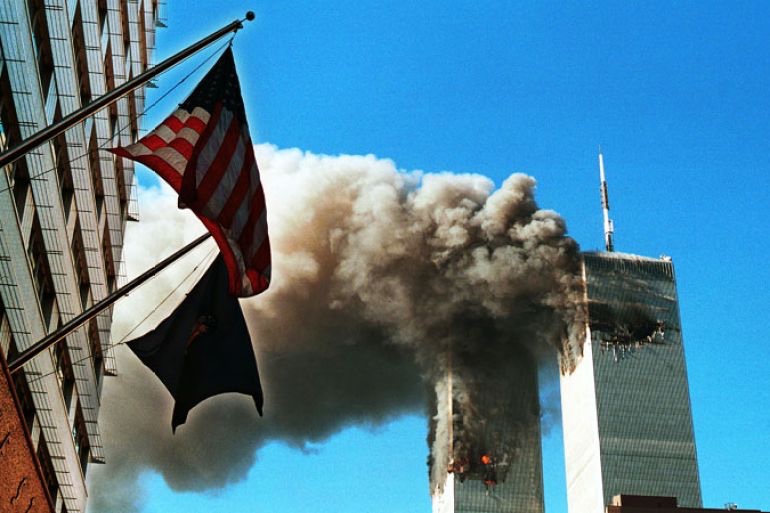
Firefighter Marcel Claes recalled, “It was single file, civilians going down and firemen going up. The civilians were orderly and blessing us and helping the injured down.” Yet, as Claes and his comrades huddled on the 35th story of the north tower, discussing the best means to transport equipment upward, a profound rumble swept through them – akin to an earthquake or a train coursing through their living room. At that moment, the south tower of the World Trade Center collapsed, shrouding the area in a colossal cloud of debris. A chief from another battalion’s voice pierced the chaos: “Drop everything and get out.”
Several firefighters recounted emotional farewells, some sharing a single cellphone to speak with their wives one last time or exchanging heartfelt goodbyes with their comrades. Timothy Brown remembered telling fellow firefighter Terry Hatton, “I love you, brother. It might be the last time I see you.”
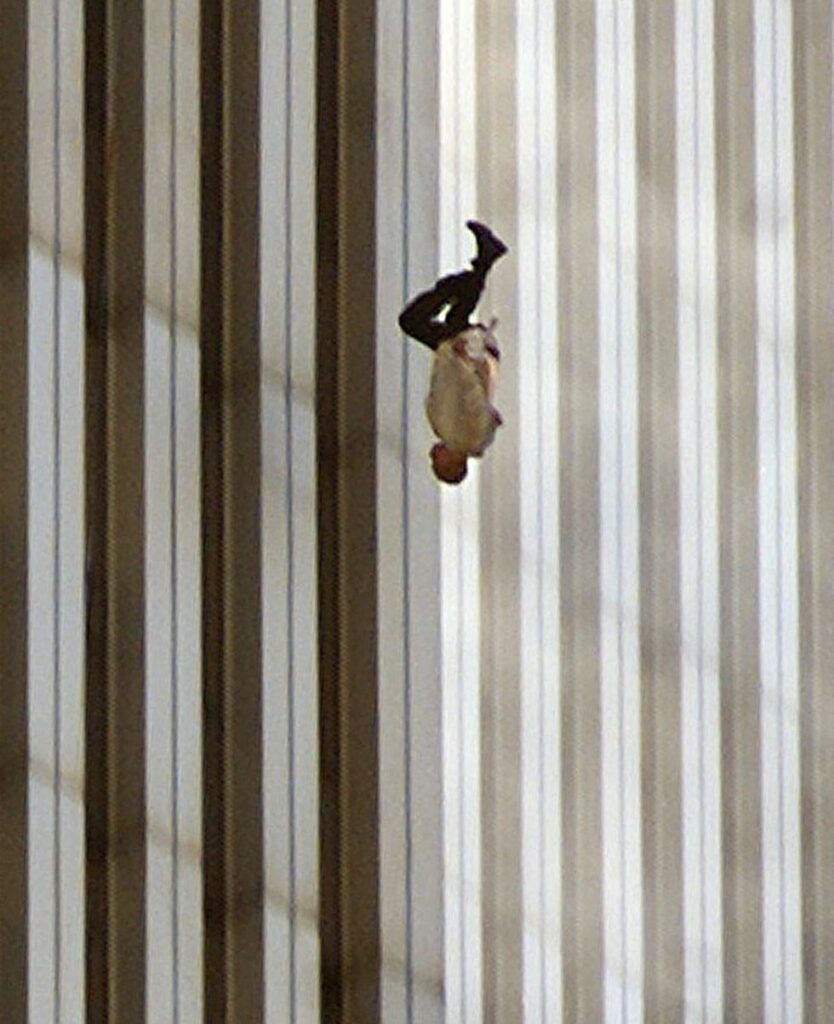
The tapes also captured the agonizing pleas of those trapped, desperately seeking help through FDNY radios. An unidentified civilian’s voice cried out, “I can’t breathe much longer. Save me! I don’t have much air. Please help me. I can barely breathe.”
On another recording, an emergency worker urgently shouted, “The World Trade Center has collapsed. Urgent! Urgent! Everybody get out!” Chief Fire Marshal Louis Garcia’s account detailed his belief that he heard what seemed like gunshots emanating from the collapsed structures. He explained, “Police officers that were trapped were shooting their guns off to try to draw attention to where they were trapped.”
While some of this material had been disclosed previously, a significant portion had been withheld until a lawsuit, filed in 2002 by several victims’ families and The New York Times, was resolved by the state Court of Appeals. The court rejected the city’s argument that releasing the material would infringe on the privacy of victims in their final moments and hinder the prosecution of Zacarias Moussaoui, who ultimately pleaded guilty to conspiring with the September 11 hijackers.
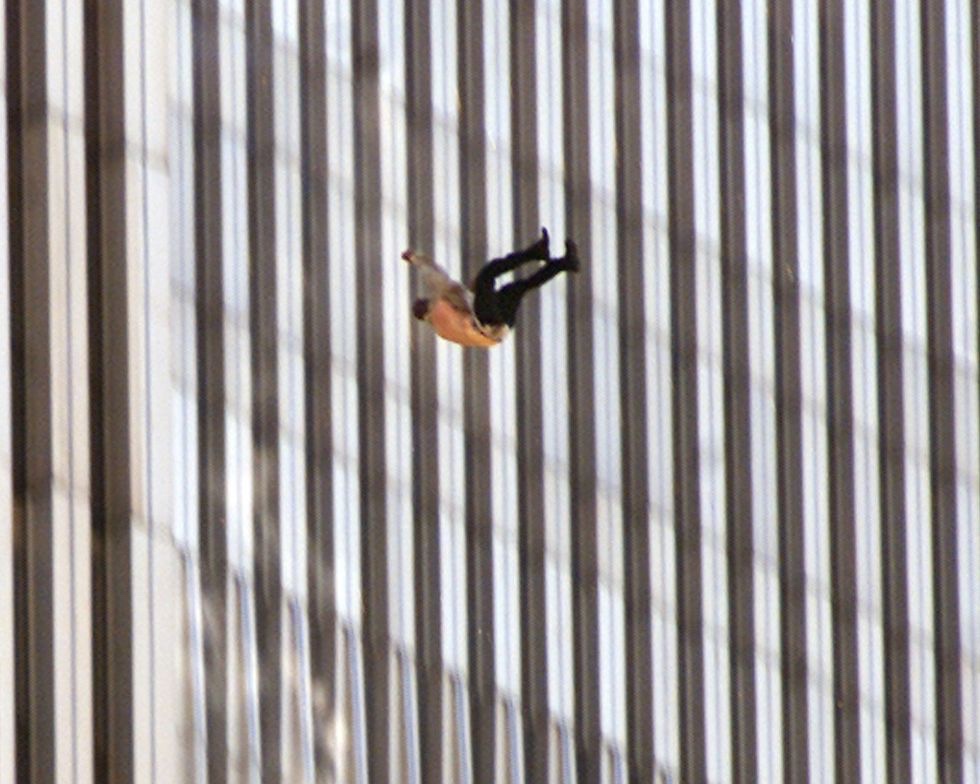
In March, the court set in motion the release that occurred yesterday. Mayor Bloomberg clarified, “The city did not think we should release them. There are all sorts of privacy issues. People say things when they call 911 or when the firefighters and police officers talk to each other that probably would be best for everybody if it just was not released.”
This recent action marked the most extensive disclosure of documents related to the terrorist attacks, which claimed nearly 3,000 lives in the towers, including 343 firefighters.
The records have unveiled additional details regarding the city’s response:
- Firefighters reported issues with their communication equipment. In one recording filled with static and sirens, a dispatcher stated, “You’re totally unreadable. Your radio’s not coming in.” Another voice on an FDNY tape expressed a sense of isolation, saying, “Right now, we’re all alone. The second building came down. I can’t see, so we have no contact with anybody at this time.”
- Calls to other units were met with either silence or frantic cries, with complaints about the thickness of smoke and debris hindering their progress. One voice urgently implored, “Have them mobilize the Army! We need the Army in Manhattan!”
- The tapes also revealed confusion and uncertainty. An ambulance driver can be heard saying, “All I want to know is, where is the nearest triage? We’ve got an ambulance full of people, and we are being bombarded with so many we can’t handle.”
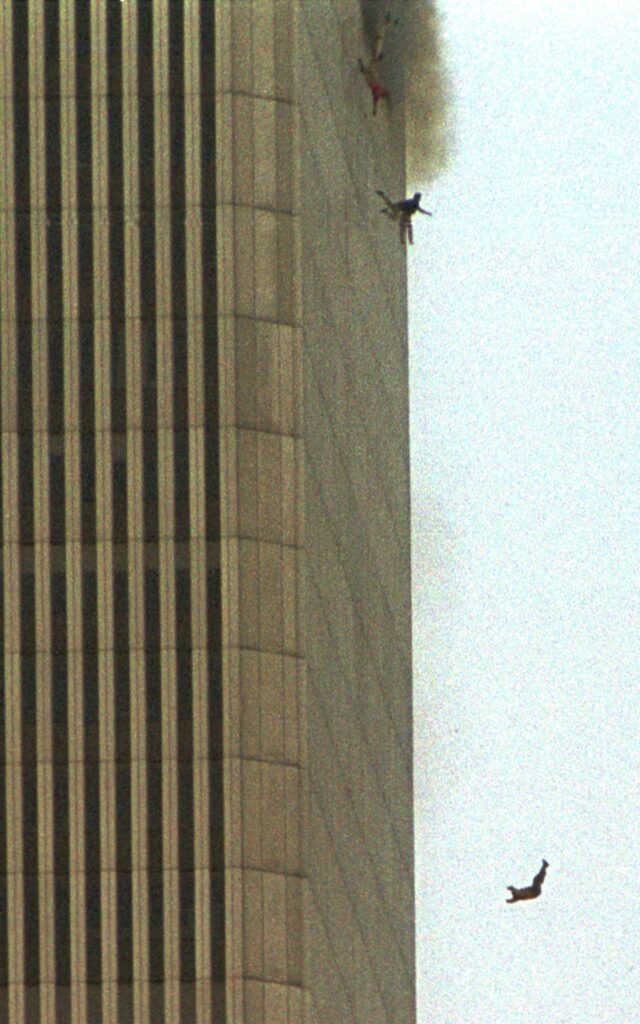
- The oral histories portrayed the frustration of FDNY leaders as they grappled with the enormity of the disaster. Deputy Commissioner Thomas Fitzpatrick, who was in the lobby of the north tower, noted, “It was evident that we weren’t going to be able to get to people above the fire. Based on the number of jumpers, we could only assume that hundreds of people were trapped.”
A group of victims’ families, who have become advocates for building-code and emergency-response reform, had been eagerly anticipating the release of these new records. While some city officials, including former Mayor Rudy Giuliani, suggested that certain firefighters may have ignored mayday calls as acts of personal heroism, the family group aimed to place responsibility on the city for providing firefighters with faulty radios.
Quotes from those on the scene:
- Firefighter Maureen McArdle-Schulman reflected, “We saw the jumpers coming. We didn’t know what it was at first, but then the first body hit and then we knew what it was. And they were just like constant… I was getting sick. I felt like I was intruding on a sacrament. They were choosing to die, and I was watching them and shouldn’t have been. So me and another guy turned away and looked at a wall, and we could still hear them hit.”
- Paramedic Gary Smiley recounted, “There was a lot of bodies, bodies came out of the sky… We were hit with debris, which turned out to be human remains. I remember a gentleman coming to us with a leg screaming to help him. It wasn’t his leg. It was somebody else’s leg.”
- EMT Jarjean Felton said, “There’s people jumping… I didn’t count, but at least a minimum of 50 people jumping. I saw a minimum of 50 people jump, couples holding hands.”
- Emergency Medical Technician Soraya O’Donnell shared a heart-wrenching story, “We saw an EMT, one of our guys, coming out of this cloud of smoke. He was holding his EMT bag and helmet. We asked him, ‘Where is your partner?’ He goes, ‘I left him. I’m looking for my father. He was in the World Trade Center.'”
- Firefighter Kirk Long, from Engine 1, recalled his experience, “There were a lot of mothers and babies there. I was ready to leave. They were a little shook up because I was covered up with all this dust. I was leaving, and they started to cry. They didn’t want me to go without them. So I stayed for maybe 10 or 15 minutes until it cleared up a little bit.”
“We had a higher number of patients than available ambulances. We resorted to cramming four or even five people into a single ambulance… the priority was to evacuate people with minimal treatment.” – Paramedic Manuel Delgado (Firefighter Carlos Lillo lost his life in the collapse)
(Compiled by Marsha Kranes, with assistance from Stephanie Gaskell, Gregory Bensinger, and John Mazor)
